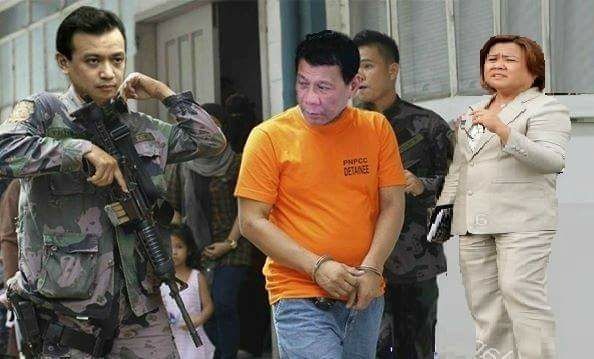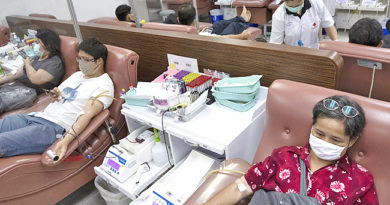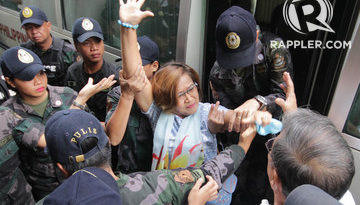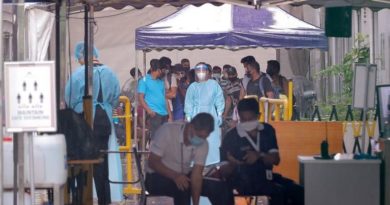OP ED Opinion-Column | FIRST THINGS FIRST-How long can BBM protect Duterte?
FIRST THINGS FIRST

PRESIDENT Ferdinand “Bongbong” Marcos Jr. (BBM) has put former president Rodrigo Roa Duterte well beyond the reach of the International Criminal Court (ICC) at The Hague by rejecting its purported jurisdiction over Duterte’s alleged extrajudicial drug killings in the Philippines. To allow the ICC to intervene in these cases would constitute an encroachment upon the sovereignty of the Philippine government, which is in control of its criminal justice system, Marcos officials said.
This statement has had a large impact on the nation’s political and media environment, but as some constitutional luminaries have pointed out, it is only partially correct. Nations surrender part of their sovereign rights whenever they enter into treaties and international statutes and accept certain limitations imposed by those treaties and statutes. Primary are the rights a member-state cedes to the United Nations and other international organizations.
Thus, in 2011, the Philippines accepted ICC jurisdiction over genocide, crimes against humanity, war crimes and aggression committed within its territory when it acceded to the 1998 Statutes of Rome that created the ICC until it withdrew from the treaty in 2016, after Duterte was cited in numerous allegations of extrajudicial killings of drug addicts.
Prior to BBM’s statement, former president and Senior Deputy Speaker of the House of Representatives Gloria Macapagal Arroyo and 18 other members of the House, together with two other senators, Sen. Robinhood Padilla and Jinggoy Ejercito Estrada, authored separate resolutions calling on the two houses of Congress to defend Duterte from any attempt of the ICC to investigate the former president. These appear to be political statements more than anything else. It is not clear whether “to defend” Duterte here means “to stand in his defense” as a lawyer stands in his client’s defense, or “to prevent his being investigated at aIl.”
These coincided with the announced decision of the ICC Pre-Trial Chamber to authorize a formal investigation into Duterte’s alleged drug killing, from the time he was mayor of Davao City to the early days of his presidency. ICC prosecutor Fatou Bensouda was known to have completed her “initial assessment” of the information against Duterte and was ready to move to a formal investigation, which is the second stage in the pre-trial process; but she was retired from the service and replaced by Karim Ahmad Khan, a British lawyer, as ICC prosecutor.
Khan is now in charge and will investigate the information filed in 2016 by Mindanao lawyer Jude Sabio, now deceased, when Duterte became president, alleging thousands of policemen, vigilantes and mercenaries killing drug addicts. Presumably, the prosecution follows a standard course which results in the filing or non-filing of a criminal case, and the trial or release from ICC jurisdiction of the accused.
It is not clear exactly what Marcos Jr. or the Congress will do to prevent an investigation of the crimes allegedly committed by Duterte and his subalterns. And it is not known whether the various foreign leaders Marcos Jr. had met in the last seven months and would be meeting very soon are supportive of his efforts to protect someone who is trying to elude the legal jurisdiction of the international court. Most analysts I know seem to believe Marcos Jr. share their Western values, which generally uphold the rights of the court. Even in Africa, some of the more colorful personalities, once accused before the court, have submitted to these values, and on trial or on appeal have won the court’s verdict.
It is freely speculated that Duterte’s “investigation” is virtually over, and that the court will not take long to decide whether or not it has a case against the former president. I hope Marcos Jr. is able to resist the pressures from all sides to change his position vis-à-vis his predecessor, but more than that, I hope Duterte could try to free Marcos Jr. from all unnecessary pressures on the case. Let Duterte assure him that he is ready to accept whatever he decides and whatever the court has in store for him.
Contemporaneously with President Ferdinand E. Marcos Sr., Augusto Pinochet ruled as president of Chile for 17 years. Supported by the US, he led the rightist coup that overthrew the democratically elected socialist government of Salvador Allende, killed or disappeared some 3,000 leftists, and made his part of Latin America unsafe for communists. He ruled first as chief of the military junta, then as president and dictator from 1973 to 1990. He was blamed for the commission of many crimes, including murder, but avoided arrest or criminal prosecution in any country or court.
He was generally regarded as a hero of the right. At the end of his presidency in 1990, he became a senator for life with diplomatic immunity, and traveled around freely, avoiding diplomatic incidents and arrests. On Oct. 18, 1998, he was finally arrested in a London hospital after a herniated disc operation, for alleged crimes against Spanish citizens in Chile. British authorities carried out the arrest on Spain’s extradition request, but it drew a very strong protest from the president of Chile who pointed out that it violated Pinochet’s diplomatic immunity. After being held under house arrest for a while Pinochet was allowed to return to Chile in 2000. He died at home in October 2006, without having been convicted of any crime anywhere.
 Ads by: Memento Maxima Digital Marketing
Ads by: Memento Maxima Digital Marketing
@[email protected]
SPACE RESERVE FOR ADVERTISTMENT


 Memento Maxima Digital Marketing
Memento Maxima Digital Marketing






